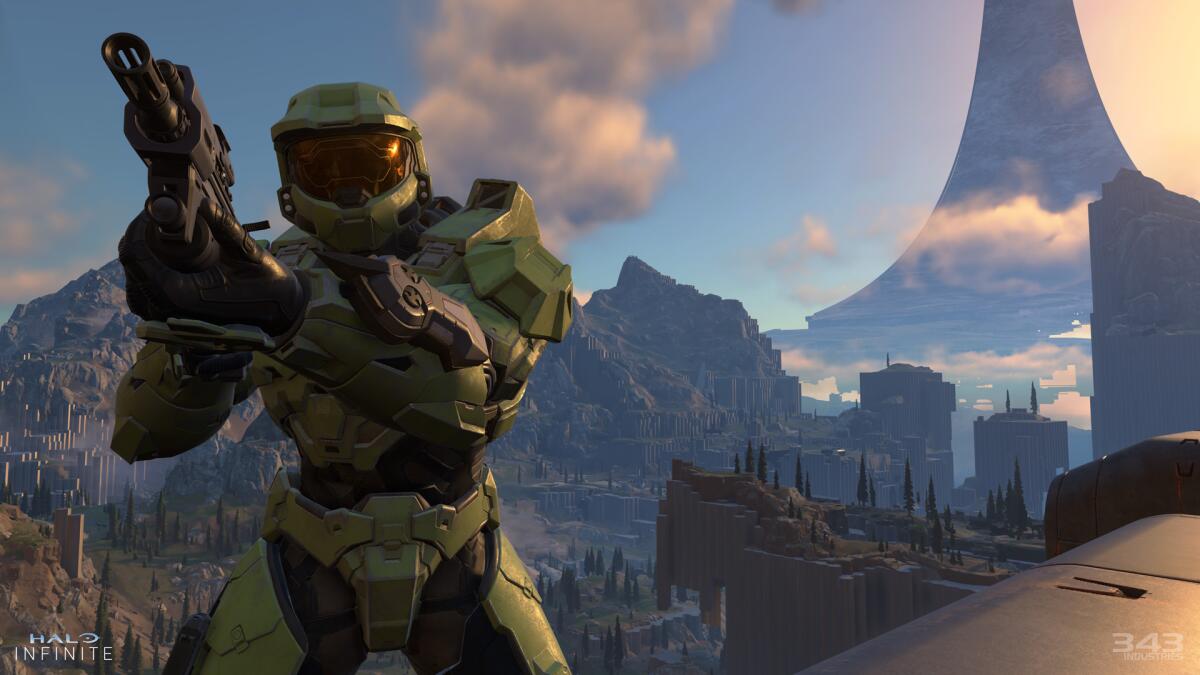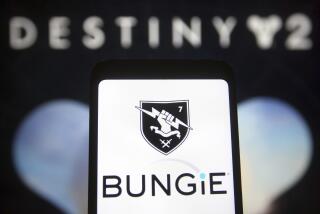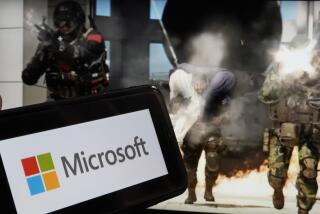Sony buys ‘Destiny’ game developer Bungie for $3.6 billion

- Share via
Sony Group Corp. is purchasing Bungie Inc., the U.S. video game developer behind the popular “Destiny” and “Halo” franchises, for $3.6 billion to bolster its stable of game-making studios.
The deal announced Monday by Sony Interactive Entertainment is the third significant video game acquisition this month, after Microsoft Corp.’s purchase of Activision Blizzard for $69 billion two weeks ago and Take-Two Interactive Software Inc.’s deal to buy mobile game leader Zynga Inc. on Jan. 10. Buying Bungie will give Sony one of the most popular first-person shooter games to compete with the massive “Call of Duty” series, which Sony’s main rival now owns through Activision.
Microsoft is committed to releasing at least the next three “Call of Duty” games on Sony’s PlayStation, Bloomberg News has reported. But eventually Microsoft could decide to take the series exclusively to its Xbox console and Windows computers. Sony, meanwhile, made clear that “Destiny 2” and other titles won’t go solely to PlayStation platforms.
“This acquisition will give SIE access to Bungie’s world-class approach to live game services and technology expertise, furthering SIE’s vision to reach billions of players,” Sony said in a statement. Bungie will continue to operate independently, “maintaining the ability to self-publish and reach players wherever they choose to play.”
Trading of Sony’s American depositary receipts was halted pending the news. They initially jumped higher but then gave up most of those gains. They closed up $4.82, or 4.5%, at $111.66.
Sony is a regular acquirer of video game studios, though Bungie is by far its largest of the last decade. The Japanese entertainment and technology giant typically buys less established studios and enhances them with marketing and development resources, as it did for Naughty Dog and Guerrilla Games.
Sony also holds minority stakes in some bigger game companies, such as Epic Games Inc., the maker of “Fortnite.” In recent years, Sony has made some smaller acquisitions, notably Burbank‘s Insomniac Games in 2019 and Finland’s Housemarque, aiming to bolster its library of PlayStation exclusives.
Activision Blizzard has been stuck in a ‘Call of Duty’ rut. How Microsoft could shake things up.
While Microsoft has focused on packing its subscription service, Xbox Game Pass, full of games big and small, Sony’s blueprint is to develop large blockbusters and keep them exclusive to PlayStation — a strategy that helped the PlayStation 4 sell more than 116 million units, well ahead of the Xbox.
Founded in 1991, Bungie helped put the Xbox on the map. Microsoft paid about $30 million to acquire the studio when it was mostly a Mac game developer working on a computer gaming project called “Halo.” The game became the foundation for Microsoft’s Xbox consoles and has generated more than $6 billion in sales, not including the most recent installment, which became available last holiday season.
In 2007, Bungie negotiated its independence and spun out from Microsoft to work on its next big thing, “Destiny,” with Activision. That relationship ended in 2019 and Bungie began self-publishing and operating “Destiny” independently. Based in Bellevue, Wash., Bungie has more than 900 employees.
“Destiny” functions differently from many other franchises. Rather than release a regular cadence of sequels, Bungie decided to continue operating and expanding the most recent game, “Destiny 2.” The base game is free to play, and Bungie regularly releases expansions and season passes full of new content. The move has been popular, drawing in more than 20 million players since 2019, according to Bungie.
After the deal closes, Bungie will be an independent subsidiary of Sony Interactive Entertainment, run by Bungie’s current chief executive, Pete Parsons. The transaction price includes employee incentives and is subject to customary working capital and other adjustments, Sony said.
Bloomberg writer Dina Bass contributed to this report.







